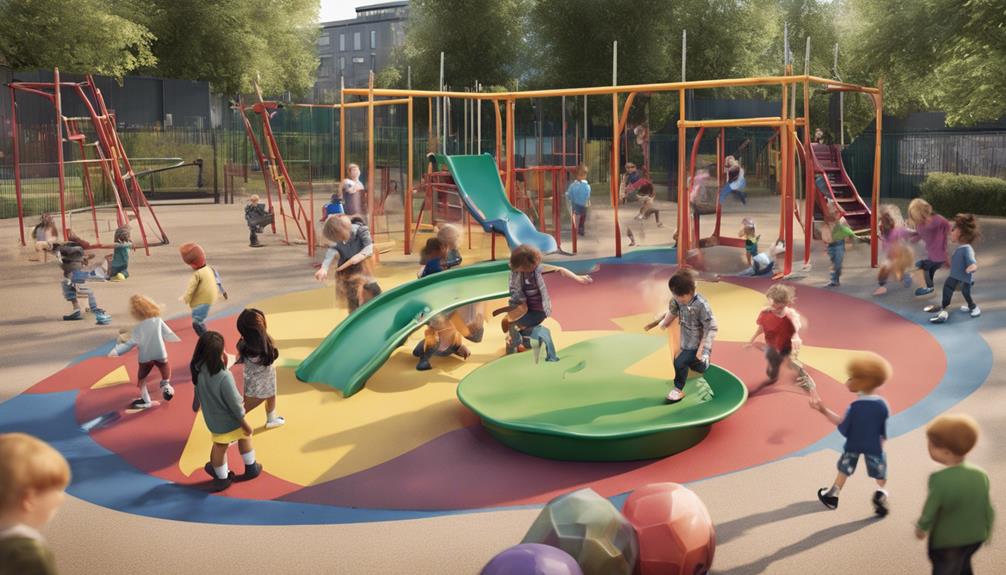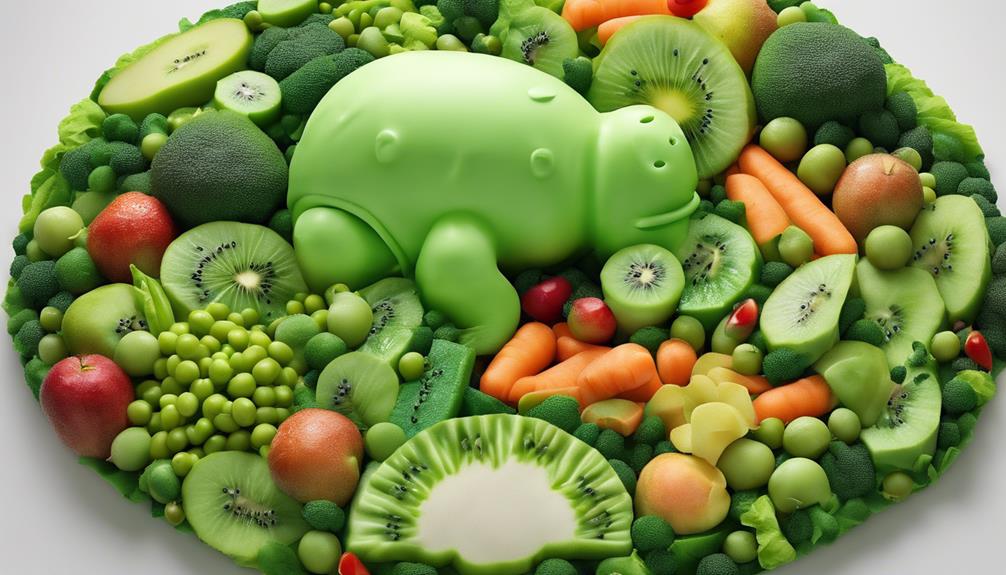If your newborn is suffering from stubborn hiccups, here's a step-by-step guide to help ease their discomfort. Understanding the triggers and implementing simple techniques can make a significant difference in soothing your little one.
From gentle burping to utilizing pacifiers strategically, these methods aim to bring relief to your baby. But what if these tricks aren't effective? Stay tuned to discover additional tips and when it might be time to seek professional advice for your hiccuping newborn.
Key Takeaways
- Burp your newborn frequently during feedings to reduce hiccups.
- Use pacifiers to relax the diaphragm and soothe the baby.
- Change positions to help move trapped air upwards and alleviate hiccups.
- Seek medical advice for persistent hiccups or accompanying concerning symptoms.
Causes of Newborn Hiccups
Newborn hiccups, often triggered by diaphragm irritation, can cause involuntary muscle contractions in your baby. These hiccups can start in the womb and continue after birth. Swallowing air during feeding, sudden temperature changes, and stress are common culprits. While it may seem concerning, hiccups in newborns actually help expel excess air from their stomachs and aid in regulating breathing. In fact, preemies hiccup around 15 minutes daily, which can support respiratory muscle development.
To prevent hiccups in your baby, try burping them frequently during feedings to release trapped air. If you're using formula, make sure that the hole in the bottle's nipple is the right size to prevent gulping of air. When breastfeeding, achieve a proper latch to minimize air intake. Additionally, keeping a calm and soothing environment can help reduce stress-induced hiccups. Remember, hiccups are a natural part of your baby's development and usually stop on their own.
Techniques to Stop Hiccups
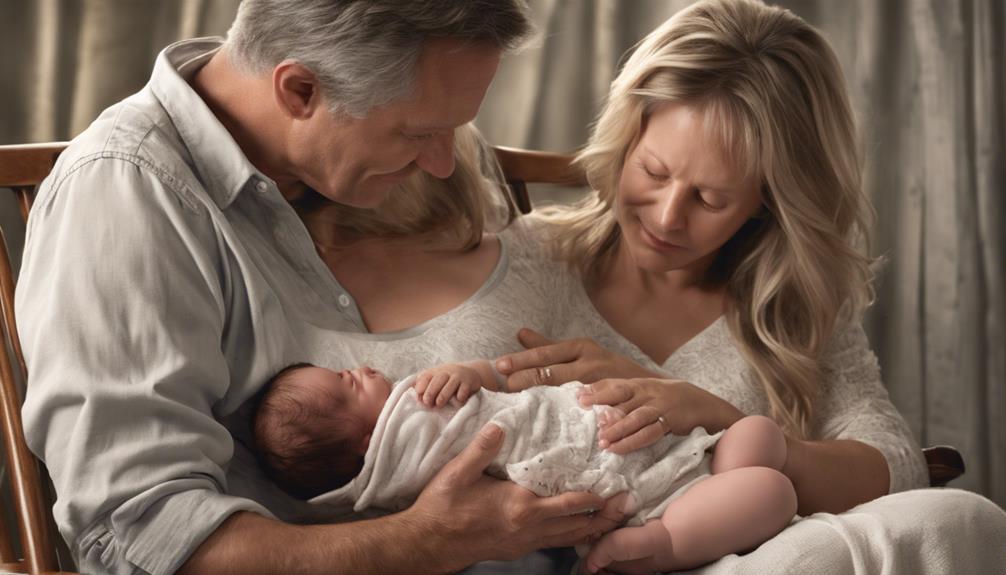
To help soothe your little one's hiccups, employing gentle techniques can aid in relieving the discomfort they may be experiencing. Here are some effective methods to stop hiccups in newborns:
| Technique | Description | Benefits |
|---|---|---|
| Burping | Burping the baby frequently during and after feedings helps release trapped air and reduce hiccups. | Releases trapped air bubbles in the stomach. |
| Pacifier | Offering a pacifier can help relax the diaphragm and stop hiccups in newborns. | Helps soothe and calm the baby. |
| Position | Changing the baby's position, such as holding them upright, can aid in relieving hiccups. | Assists in moving trapped air upwards. |
| Rubbing | Gently rubbing the baby's back or tummy can help alleviate hiccups by releasing trapped air bubbles. | Provides comfort and aids in digestion. |
Preventing Hiccups in Newborns

To prevent hiccups in your newborn, guaranteeing proper feeding practices is key. Here are some essential tips to help you prevent hiccups in your little one:
- Burp Your Baby: Make sure to burp your baby frequently during feedings to reduce air intake and lower the chances of hiccups.
- Paced Bottle Feeding: Utilize paced bottle feeding techniques to control the milk flow and prevent your baby from swallowing excess air.
- Keep Your Baby Upright: Keeping your baby in an upright position while feeding can aid in burping and decrease the likelihood of hiccups.
- Use the Correct Nipple Size: Opt for the appropriate nipple size for bottle-feeding to minimize air ingestion and potential hiccups.
- Proper Latch: Guarantee a proper latch during breastfeeding to reduce air swallowing, which can help prevent hiccups in newborns.
When to Seek Medical Advice
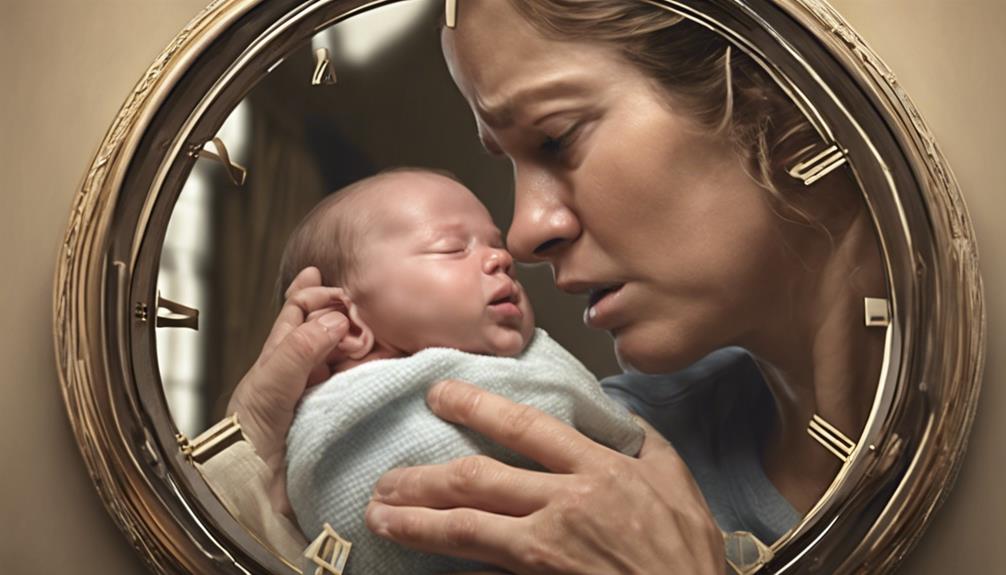
If your newborn's hiccups persist for hours without resolving, seeking medical advice is crucial to ensure their well-being. While hiccups are common in newborns, prolonged or frequent hiccups that disrupt feeding schedules or sleep patterns may require attention from a healthcare professional.
If your baby seems distressed or if the hiccups are accompanied by other concerning symptoms such as vomiting or fever, it's essential to consult a healthcare provider promptly. Trust your instincts as a parent; if you have any worries about your baby's health related to persistent hiccups, seeking medical advice is the best course of action.
Summary and Next Steps
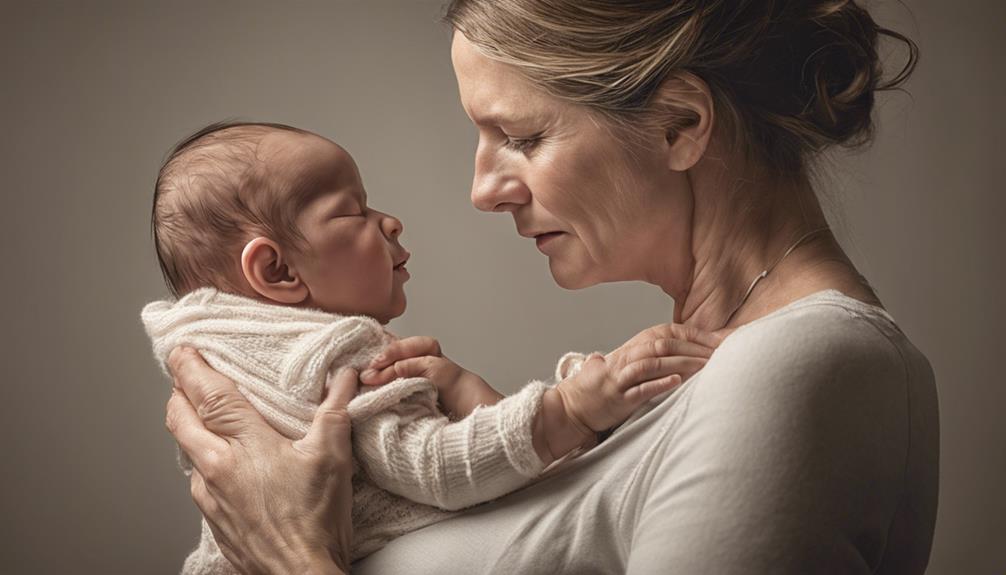
Considering the common occurrence of newborn hiccups, let's review some helpful strategies to manage them effectively. Newborn hiccups are typically harmless but can be distressing for both the baby and the caregiver. Here are some key steps to address and prevent hiccups in your little one:
- Burp Your Baby: Ensuring your baby is properly burped during and after feedings can help reduce the likelihood of hiccups.
- Offer a Pacifier: Allowing your baby to suck on a pacifier can sometimes help alleviate hiccups by regulating their breathing.
- Change Baby's Position: Gently changing your baby's position, such as holding them upright or placing them on their tummy, can aid in stopping hiccups.
- Feed Smaller, More Frequent Meals: Opt for smaller, more frequent feedings to prevent your baby from swallowing excess air, which can lead to hiccups.
- Seek Medical Advice if Needed: If your baby experiences persistent hiccups or if you notice any other concerning symptoms, it's crucial to consult with a healthcare provider to rule out any underlying medical concerns. Remember, always prioritize gentle measures when addressing newborn hiccups.
Frequently Asked Questions
How Do I Relieve My Newborns Hiccups?
To relieve your newborn's hiccups, try burping them frequently during feedings, offering a pacifier for relaxation, changing their position to release trapped air, and gently rubbing their back or tummy to soothe them. Avoid adult remedies.
What Is the Best Position for Baby Hiccups?
When soothing baby hiccups, cradle your little one upright, supporting their back gently. This position aids in releasing trapped air bubbles, easing irritation, and relaxing the diaphragm. Keeping their head slightly elevated above the stomach can help.
Is It OK to Lay Baby Down With Hiccups?
It's generally safe to lay your baby down with hiccups if they're comfortable. Hiccups are common in newborns and won't typically be worsened by lying down. Monitor their comfort and seek advice if hiccups persist.
How to Get Rid of Hiccups Fast?
When hiccups hit your newborn, try patting their back, offering a pacifier, adjusting feeding positions, and burping them often. Avoid adult remedies or startling your baby. These gentle methods can help stop hiccups and keep your little one comfortable.
Conclusion
So, now you know how to help your newborn with hiccups. Remember to burp them regularly, use pacifiers, and avoid adult remedies.
By following these simple steps, you can help alleviate your baby's hiccups and guarantee they're comfortable and happy.
If hiccups persist or if you have any concerns, don't hesitate to seek medical advice. Your little one will be hiccup-free in no time!

